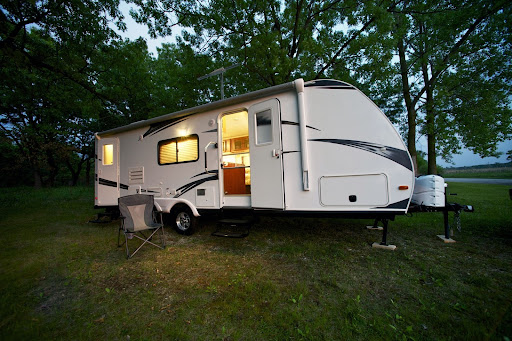Common RV problems every owner should know about
Defective Products - March 28, 2024 by Horwitz, Horwitz & Associates
Taking an RV out on the open road for a road trip vacation is a dream for many, but these dreams can quickly become nightmares due to some of these common RV problems. At best, you could be stuck on the side of a road with no help for miles; at worst, an RV problem could cause a collision that could change your life forever.
If your RV malfunctioned and caused injury to you or your loved ones, you could be eligible to seek compensatory damages from a negligent party such as the manufacturer or mechanic that permitted an unsafe vehicle to be used by consumers.

Overview of the most common RV problems
RVs and trailers are unique in that they combine the most common problems of a car with the most common problems of a house!
Electrical and battery
You have more batteries to tend to in an RV than you do in your car. Your starting or chassis battery operates like a normal car battery–it provides the power to start the engine and operate your windshield wipers, radio, headlights, etc. You’ll also have at least one “house battery” which can operate some low-voltage things in your RV such as lights, the water pump, the slides, fans, and DC power.
More batteries mean more electrical problems to worry about. Before starting your trip, ensure your batteries, including any spares, are charged, clean, and properly connected.
If you have batteries containing water, keep them at the proper levels; batteries that go dry can cause an engine fire or permanently damage the RV’s electrical system. If the batteries won’t hold a charge or make funny noises, it’s time to replace them.
Plumbing
Plumbing leaks in an RV are just as messy as those at home, but the dangers are much greater. Depending on the leak’s location, water could damage the RV’s electrical system, starting a fire or rendering it immobile.
If your RV doesn’t have a moisture-detection system installed, putting one in the sensitive areas of the vehicle can help avoid serious water damage. As part of your pre-trip inspection, check the rubber seals around the water valve and replace them if they’re worn. Also, check the closure on the water valve – if it doesn’t fully close, it can leak.
Unlike at your home, your RV has tanks to hold your waste. A leak or malfunction of those tanks or of the disposal system can cause quite a mess.
Structural and exterior damage
Hail storms, the hot summer sun, and heavy snow can all cause significant damage to an RV’s exterior. Although it might only look like cosmetic damage, it could cause leaks that damage the interior or create conditions where mold and mildew grow rampant. An RV cover can help when the vehicle isn’t in use, keeping the sun and damaging debris from ruining the protective coating.
Exterior damage can make the RV’s HVAC system run less efficiently because of drafts in the vehicle. Pests can also get in through cracks or holes, further damaging your RV.
Tires and wheels
Tire problems are a nuisance, but the resulting condition could be deadly if your RV blows a tire while you’re on the highway. Poor RV storage in the off-season could mean the tires expire or crack faster. If you start driving on damaged or worn-out tires, you will likely get a flat or a blowout.
Even if you don’t get hurt in a blowout accident, the physics of the exploding tire can cause serious damage to the wheel wells, fenders, axles, or the fiberglass components of the RV.
Sometimes it’s hard to tell if a tire on the back of the RV is flat, so some travelers may drive on it for too long until it’s too late. Always check your tires, including making sure they’re properly inflated, before beginning your trip.
If your vehicle doesn’t come with tire pressure sensors, make sure you get an aftermarket version installed. Proper tire maintenance and monitoring can save you thousands in repair bills.
Appliances
Most RVs have a stove and lights installed, and many owners bring smaller kitchen and comfort appliances along for the ride. Inspect the wiring of the appliances and the outlets in the RV – if you’re unsure what to look for in terms of wear and tear, ask a professional electrician.
Worn or faulty wiring can cause serious electrical fires. If something happens while the RV is in transit, the emergency could cause the driver to wreck. Even if the RV isn’t moving, electrical fires can harm people and pets when you’re parked in the campground.
Are you worried about defects or malfunctions in your RV?
If you or a loved one have been injured due to a malfunctioning RV or a defective vehicle, we can help. Contact the skilled Chicago product liability lawyers at Horwitz, Horwitz & Associates today at (800) 985-1819 for a free consultation about your case!


